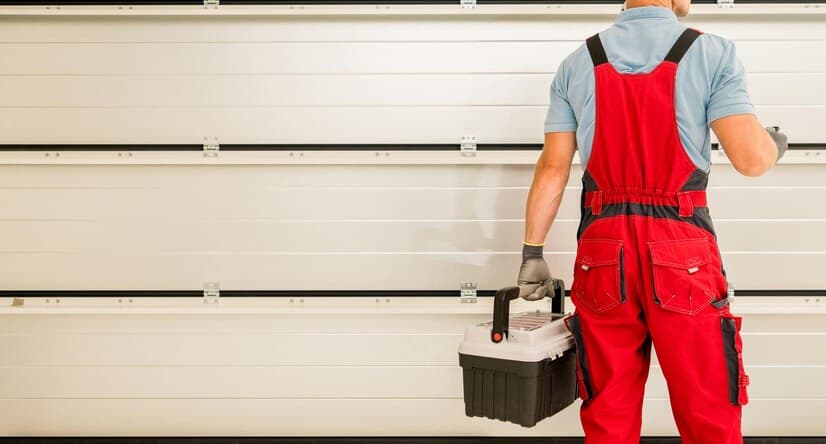The Role of Garage Door Sensors and How to Maintain Them

Strong 8k brings an ultra-HD IPTV experience to your living room and your pocket.
Introduction
Garage doors are an essential part of any home, offering convenience, security, and aesthetic appeal. Central to their operation are garage door sensors, which play a vital role in ensuring safety and functionality. These small yet powerful devices are responsible for detecting obstacles and preventing accidents, making them a cornerstone of modern garage door systems. This article explores the role of garage door sensors, their types, how they work, and crucial maintenance tips to keep them in top shape. We’ll also answer frequently asked questions to provide a comprehensive guide.
Understanding the Role of Garage Door Sensors
Garage door sensors primarily serve as a safety mechanism to prevent accidents and protect property. They ensure that the garage door halts or reverses if something obstructs its path. This is especially important in households with children, pets, or valuable items stored in the garage. Sensors also enhance the convenience of operating garage doors, as they automatically adjust the door’s movement based on the environment and potential obstructions.
How Garage Door Sensors Work
Garage door sensors typically consist of two components:
Photoelectric Sensors: These include a transmitter and receiver installed on either side of the garage door, close to the ground. The transmitter sends an invisible beam of light to the receiver. If this beam is interrupted, the door stops closing and reverses its motion.
Safety Reversal Systems: These sensors are linked to the motor and control panel. When an object is detected, the control panel triggers the motor to halt and reverse the door's movement.
Together, these components work seamlessly to prevent damage and injuries.
Types of Garage Door Sensors
Infrared Sensors: The most common type, these use an infrared beam to detect obstructions.
Pressure Sensors: Installed at the base of the door, they sense pressure from objects in the door’s path.
Ultrasonic Sensors: These advanced sensors emit sound waves to detect objects, offering precise readings.
Smart Sensors: These connect to smart home systems, allowing remote monitoring and control via smartphones or other devices.
Each type has its unique advantages, but all are designed to enhance safety and performance.
Why Garage Door Sensors Are Important
Preventing Accidents: Sensors stop the door from closing on children, pets, or objects.
Protecting Property: They prevent damage to vehicles or items accidentally left in the door's path.
Enhancing Security: Sensors can integrate with smart systems to alert homeowners of unusual activity.
Compliance with Safety Standards: Modern safety codes often require functional sensors for all automated garage doors.
Common Issues with Garage Door Sensors
Despite their importance, sensors can experience problems over time. Common issues include:
Misalignment: Sensors need to be precisely aligned for the light beam to work correctly.
Dirty Lenses: Dirt, dust, or cobwebs can block the sensor's beam.
Wiring Problems: Faulty or damaged wires can disrupt the connection.
Sensor Damage: Physical damage from accidents or wear and tear can impair functionality.
Maintenance Tips for Garage Door Sensors
Regular Cleaning: Wipe the sensor lenses with a soft cloth to remove dust and dirt.
Check Alignment: Ensure the sensors are properly aligned and adjust if necessary.
Inspect Wiring: Look for any visible damage to wires and replace them if needed.
Test Functionality: Periodically test the sensors by placing an object in the door’s path and observing if it reverses.
Lubricate Moving Parts: While this doesn’t directly involve sensors, keeping the door mechanism smooth reduces strain on the sensors.
Secure Mounting Brackets: Ensure the brackets holding the sensors are tight and not wobbly.
Routine maintenance can save you from costly repairs and ensure your sensors operate effectively.
When to Call a Professional
If your garage door sensors stop working despite maintenance, it’s time to call a professional. Trained technicians can diagnose issues like circuit board problems or complex wiring faults and provide effective solutions. Additionally, professional servicing ensures compliance with safety standards.
FAQs About Garage Door Sensors
Q1. How do I know if my garage door sensors are malfunctioning?
A malfunctioning sensor may cause the garage door to stop midway, reverse unnecessarily, or fail to close completely. Check for blinking indicator lights on the sensors, which often signify an issue.
Q2. Can I replace garage door sensors myself?
While simple issues like cleaning or realigning can be handled DIY, replacing sensors is best left to professionals to ensure proper installation and calibration.
Q3. Are garage door sensors universal?
Most sensors are brand-specific, so it’s essential to choose ones compatible with your garage door system.
Q4. How long do garage door sensors last?
With proper maintenance, sensors can last 5–10 years. However, environmental factors and usage frequency may impact their lifespan.
Q5. Why does my garage door sensor light blink?
Blinking lights typically indicate misalignment or an obstruction. Inspect and clean the sensors or adjust their positioning.
Q6. Can I operate my garage door without sensors?
Disabling sensors compromises safety and may violate safety regulations. It’s not recommended to operate the door without functional sensors.
Q7. Do garage door sensors work in all weather conditions?
Most sensors are designed to work in various conditions but may struggle in extreme weather. Keep sensors clean and sheltered to ensure consistent performance.
Q8. What’s the cost of replacing garage door sensors?
Sensor replacement costs vary based on the type and brand but generally range between $50 and $150, excluding labor charges.
Q9. How often should I test my garage door sensors?
Testing every 1–2 months ensures they remain functional and identifies any issues early.
Q10. Can smart garage door sensors improve security?
Yes, smart sensors provide real-time alerts and remote control, enhancing security and convenience.
Final Thoughts
Conclusion
Garage door repair in santa clarita are crucial for maintaining safety and convenience in modern homes. By understanding their role, addressing common issues, and performing regular maintenance, you can avoid frequent repairs and ensure the smooth operation of your garage door system. Whether you’re a homeowner looking to enhance safety or simply curious about how these devices work, a little attention to your sensors can go a long way in preventing accidents and prolonging the life of your garage door.
Note: IndiBlogHub features both user-submitted and editorial content. We do not verify third-party contributions. Read our Disclaimer and Privacy Policyfor details.


